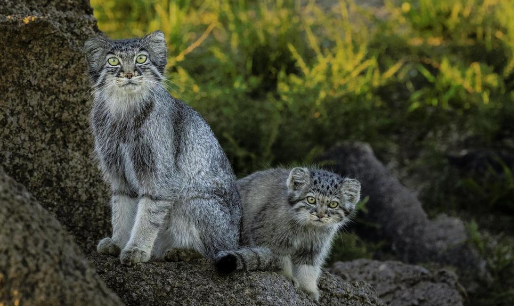Unveiling the Charm of Pallas Cat Pet as Unique Pets

Introduction:
Owning an exotic pet can be a fascinating experience, and one such captivating option is the Pallas cat. In this article, we will explore the world of Pallas cat pets, shedding light on their unique characteristics and what it takes to care for these extraordinary feline companions.
The Appeal of Pallas Cat pet as Unconventional Pets
Pallas Cat Pet: A Distinctive Choice The Pallas cat, scientifically known as Otocolobus manul, is a small wild cat native to Central Asia. Despite their wild origins, these creatures have become increasingly popular as unique and captivating pets. Let’s delve into what makes them stand out among other domesticated feline companions.
Understanding Pallas Cat Behavior
What Sets Pallas Cats Apart? Pallas cats are known for their distinctive appearance, marked by a round face, bushy tail, and dense, plush fur. Unlike traditional domestic cats, Pallas cats have a stocky build and short legs, giving them an endearing and almost toy-like quality. Their reclusive nature adds to their mysterious charm, making them a favorite among exotic pet enthusiasts.
See Also Unleash Savings with Amazon Pet Deals: A Guide to Pawsome Discounts
Caring for Your Pallas Cat Pet
Ensuring a Happy and Healthy Pallas Cat While the idea of having a Pallas cat as a pet may sound intriguing, it’s crucial to understand the responsibilities that come with caring for these unique creatures. Proper nutrition, a suitable living environment, and regular veterinary check-ups are essential to ensure the well-being of your Pallas cat. Due to their wild instincts, engaging them with stimulating toys and activities is also vital for their mental and physical health.
Challenges and Rewards of Pallas Cat Ownership
Pallas Cat Pet Ownership: A Journey Worth Taking Owning a Pallas cat as a pet is not without its challenges, as these animals have specific needs and behaviors rooted in their wild ancestry. However, the rewards of forming a bond with such a unique and elusive companion are immeasurable. It’s essential to approach Pallas cat ownership with dedication and a genuine passion for these extraordinary creatures.
Conclusion
In conclusion, the idea of having a Pallas cat as a pet adds an element of intrigue and uniqueness to the world of exotic animal companionship. Understanding their distinct characteristics, providing proper care, and embracing the challenges that come with Pallas cat ownership can result in a fulfilling and enriching experience. As you embark on the journey of having a Pallas cat as a pet, remember to cherish the bond you form with these captivating creatures.
FAQs
Q1: Can Pallas Cats be Kept as Indoor Pets?
A1: Yes, Pallas cats can adapt to indoor living, but it’s crucial to provide them with a spacious and enriching environment. Creating a designated area with climbing structures, hiding spots, and toys mimicking their natural habitat is essential for their well-being.
Q2: What Do Pallas Cats Eat?
A2: Pallas cats primarily feed on small mammals like rodents and birds in the wild. As pets, it’s recommended to provide them with a high-quality commercial feline diet supplemented with meat. Consult with a veterinarian to ensure their nutritional needs are met.
Q3: Are Pallas Cats Affectionate Towards Humans?
A3: Pallas cats are known for their independent and solitary nature. While they may not be as affectionate as traditional domestic cats, some individuals can form bonds with their owners. Patience and consistent positive interactions are key to building trust.
Q4: Do Pallas Cats Require Special Veterinary Care?
A4: Yes, Pallas cats need specialized veterinary care from professionals familiar with exotic species. Regular check-ups are crucial, and vaccinations should be tailored to their specific needs. Dental care is also essential to ensure their overall health.
Q5: How Do Pallas Cats Behave Around Other Pets?
A5: Pallas cats tend to be territorial, and introducing them to other pets should be done gradually and under supervision. It’s essential to consider the individual temperament of both the Pallas cat and existing pets to ensure a harmonious living environment.
Q6: Are Pallas Cats Legal to Keep as Pets?
A6: Legalities regarding Pallas cat ownership vary by location. Research local laws and regulations to ensure compliance. Obtaining the necessary permits and certifications, if required, is crucial to ensure the well-being of both the Pallas cat and the owner.
Q7: What Size Enclosure is Suitable for a Pet Pallas Cat?
A7: Pallas cats need a secure and spacious enclosure that allows for climbing and exploring. A well-ventilated indoor enclosure or an outdoor enclosure with proper security measures to prevent escapes is recommended. The size should be adequate for their physical activity and mental stimulation.



